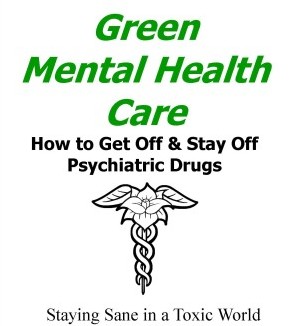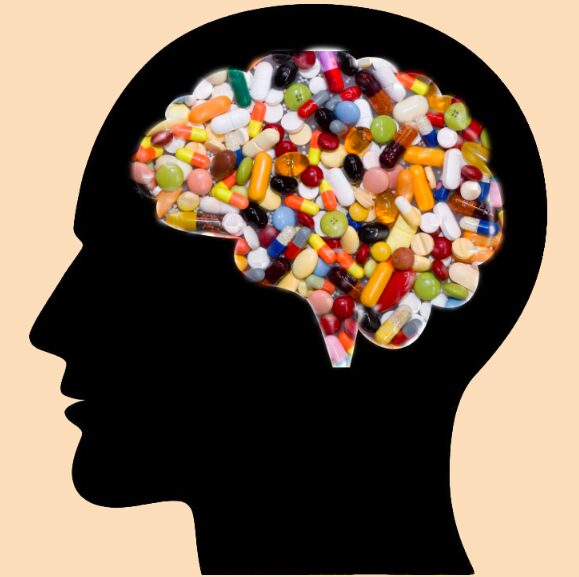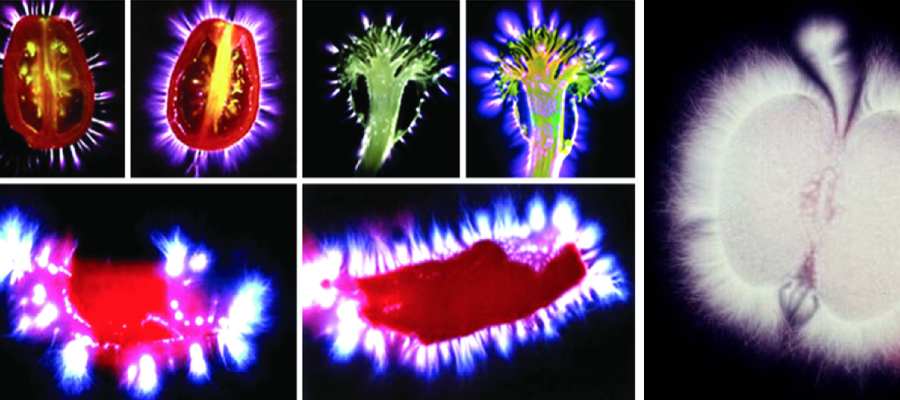Genita M. Mason’s WAKE UP Series #4
Psychiatric Drugs Are Not Medicine
Psychiatric Drugs Are Chemical Lobotomies & Cause Numerous Serious
Neuroendocrine, Brain, and Gut Health Problems!
Wake UP!
How Psych Drugs Damage The Brain (Neurotoxic)
Click The Book Icon For A Free Brochure
 Because psychiatric drugs are affect neurochemistry they are available to specifically manipulate the function of neurons in the brain and nervous system. And just like all other neurotoxins, they are known to be “endocrine disruptors.” They adversely affects hormonal balance.
Because psychiatric drugs are affect neurochemistry they are available to specifically manipulate the function of neurons in the brain and nervous system. And just like all other neurotoxins, they are known to be “endocrine disruptors.” They adversely affects hormonal balance.
From the very first dose, psychiatric drugs begin damaging the mitochondria of cells. The mitochondria is the energy production plant for the cell. It uses carbohydrates to make energy for the cell to do what people expects it to do, repair and replicate. As the mitochondria becomes “sick” or sluggish, it is unable to create the energy that the cell requires to function and this results in the body (and brain) going into toxic overload because the cell doesn’t have the energy to detoxify or get the waste out. The liver becomes sluggish and toxins begin to recirculate throughout the body. When the mitochondria of cells become damaged there is no limit on what kind of disease or mental symptom can develop as each and every cell of the body relies on the mitochondria for healthy functioning.
Mitochondrial damage results in “side effects” (which are really direct effects). It also leads to various diseases that psychiatric drugs have a link to from diabetes to cancer. A large part of the reason that psychiatric drugs cause weight gain is due to the mitochondria’s progressive inability to properly convert carbohydrates and fats to energy.
Psychiatric drugs literally chew away at brain cells. It continues until they completely disintegrate and their protein breakdown by-products are ingested by the system.
Accumulation in the body of the waste products of neurotoxic destruction of brain cells is one condition that leads to Alzheimer’s and Parkinson’s disease, as does the toxic agent that is causing the brain cell death. The gradual build up of the drug combined with the body’s diminishing ability to get it out of the system wreak havoc on cellular functions. It sets the stage for the many, many diseases psychiatric drugs are known to cause (heart attack, stroke, sudden death, liver disease, tics, involuntary muscle spasms, stunted growth, diabetes, etc).
For a current listing of the side (direct) effects and how lethal psychiatric drugs are, consider the documented side effects of these commonly prescribed psychiatric drugs by international drug regulatory agencies at: http://www.cchrint.org/psychdrugdangers/
Also be sure to download the free brochure, The Side Effects of Common Psychiatric Drugs.
How Psychiatric Drugs Cause Addiction
There is another very dangerous activity going on: because the body needs to make biochemical changes to accommodate the drug, neurochemical adaptation, better known as addiction, occurs. Psychiatric drugs are synthetic and made purposely to not break down easily in the system. This is why such a small amount goes a long way. This is not good because it causes the body and mind to develop a deeper relationship, or dependence on the drug, and because the half life is 5 to 10 times longer, the drug has more time with and access to the cells to damage them. These synthetic drugs replace or alter (increase or decrease) your body’s natural production of the neurochemicals it needs to function. This is a true chemical imbalance because it ignores or bypasses the brain’s mechanisms for balance or “homeostasis.”
When the body and brain are healthy they can create the exact amounts of what they need in neurotransmitters and hormones by using a feedback system which tells them there is enough and they will slow down production of the chemical, or if there is too much, reduce receptor sites to maintain balance. However, in the case of drugs, the feedback system will try and reduce it via enzymatic ingestion but can’t, so then it will reduce its own production of the neurochemical the drug is mimicking as well as the receptors for that drug which puts the person in grave danger should they lose their bottle of pills on the wrong day!
The end result is not only a strong dependence on the drug but the desire to avoid the symptoms from the damage they have caused. It creates an even greater psychological dependence.
And finally, neurotoxins mutate genes and genetic expression and interfere with fetal development. There is no mystery as to why birth defects have skyrocketed in the last 30 years since Big Pharma has been saturating the public and practitioners with claims made only by their own pseudoscience that they have answers for mental health issues. The opposite is true. They are actually a part of the problem of the growing epidemic mental health issues today. Doesn’t it make sense that if they had solutions, the reported mental health complaints would decrease? So why are mental health issues growing yearly?
Psychiatric drugs are neurotoxic chemicals to “kill the messenger” of bad news. This is left of brain function slowly deteriorates and becomes symptomatic. This is why people get multiple diagnosis over time. Every organ of the body for good mental health is compromised by these neurotoxins. Besides, there is no avoiding the damage they are known to inflict while on them. People are getting sicker and sicker because they are not addressing the root cause of their symptoms. However, instead they are taking toxic drugs that only add to the original health issue while causing their own.
Wake Up!

Wishing you all the blessings that a healthy mind and body brings!
In service we shine,
Shine!
Genita M. Mason (Petralli) H.H.P., N.C., M.H.
Medical Director, The BioSanctuary,
www.theozonetreatmentcenter.com
(877) 285.9266




